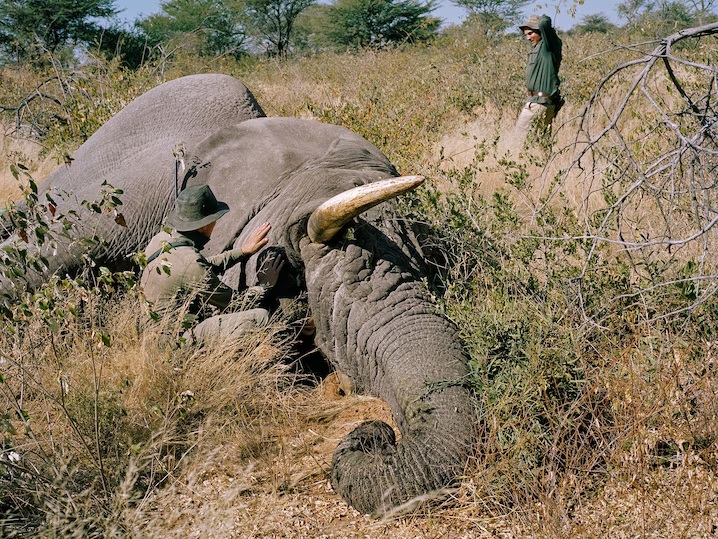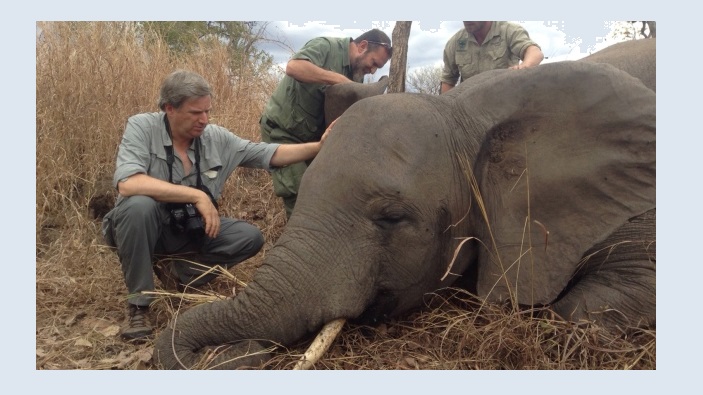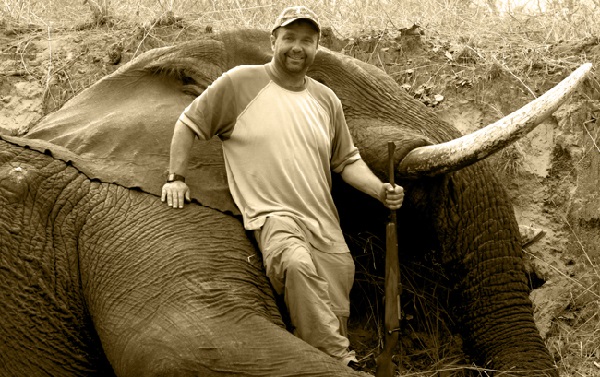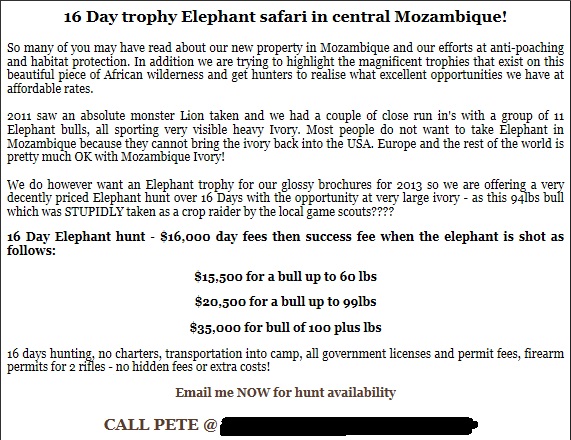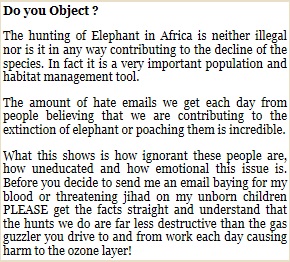Botswana’s president recently threatened to send 20,000 elephants from Botswana to Germany in a feud over stricter regulations on trophy imports. Find out why President Mokgweetsi Masisi’s claims about hunting simply don’t stack up and how animal-friendly approaches in Botswana actually help conservation goals and the economy.
Earlier this year, Germany proposed stricter limits on trophy imports, which led to controversy and claims from President Masisi that it would further impoverish Botswanans.
Trophy hunters worldwide are attempting to justify their killing by making outlandish claims to hide their conservation harms and economic exploitation.

According to Dr. Keith Lindsay, a renowned conservation biologist with over 30 years of research and hands-on experience conserving African elephants, including population management, nothing could be further from the truth.
While there are challenges for African countries that have elephant/human conflicts, many have found proven solutions that respect elephants without killing or trapping them.
The way to create harmony with elephants is to know the facts first.
- Elephant populations have not “exploded,” as President Masisi claims. Botswana’s elephant population has not increased significantly for about two decades.
- Trophy hunting funds corruption and does not bring in significant net revenue for conservation. The ones that profit are sports hunting companies, a few government officials, and community trust members who siphon off funds. Very little goes to the hundreds of households sharing the meager proceeds, which Dr. Lindsay says is “enough for a pair of socks.”
- According to the numbers, hunting does not keep elephant populations in check, as President Masisi claims. A 2022 survey of elephants in Botswana indicated there were about 132,000. The hunting quota in 2024 is 400 elephants, which is less than 0.3%. It’s not enough to make a dent in their population, even if all 400 were killed, but it is a risk to all older male elephants and large-tusked elephants, who hunters target despite their vitally important role in elephant societies.
- Botswana banned trophy hunting in 2014 but lifted it in 2019 to give the impression it would boost the economy, but elephants are much more valuable alive.
- Live elephants contribute a much greater amount to the economy than dead ones. Per Dr. Lindsay, “Photographic ecotourism, even in Botswana, employs more people and contributes more to the national economy, including through multiplier effects on value chains of suppliers to the industry than does the minimal amount from trophy companies.” Only a few countries in southern Africa exploit wild animals as a resource through killing and consumption.
- Conflicts from elephants eating crops and killing people are not due to elephant overpopulation but to human populations expanding into elephant territories and growing vegetation that elephants like to eat.
- Many conservation experts advocate against killing keystone species on ecological grounds. The minority who stand to gain from trophy hunting often attempt to marginalize all who oppose hunting and killing elephants as “extremists” despite being the vast majority.
- Organizations like Ecoexist and Elephants Without Borders are working successfully with local farmers on practical approaches to human-elephant coexistence to resolve conflicts where they exist.
Elephants are not products to buy and sell. They are majestic living beings who deserve to live free as they have for thousands of years on the lands of their ancestors.
For the Silo, Courtney Scott / In Defense Of Animals.
Featured image: German sport hunter kills old Bull elephant in Botswana. image courtesy of National Geographic.
